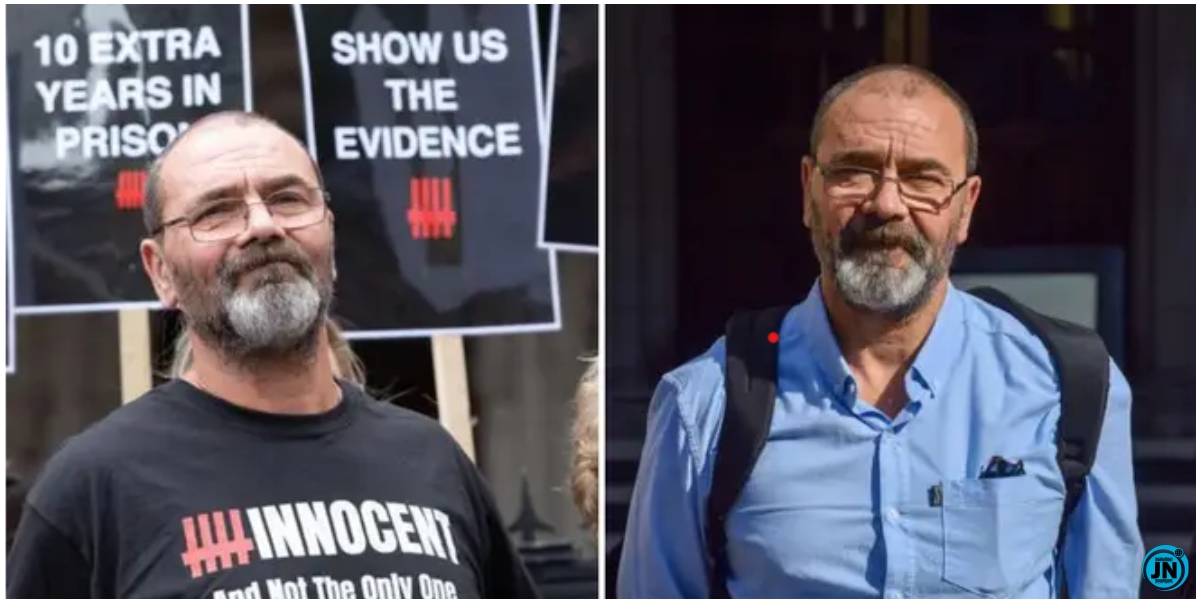
Andrew Malkinson, a man who endured 17 years of wrongful imprisonment for a crime he did not commit, has expressed dissatisfaction with the £1 million (approximately N850 million) compensation offered to him. He believes this amount fails to adequately address the immense suffering he experienced.
Malkinson's conviction was overturned recently due to new DNA evidence pointing to another individual's involvement in the crime, sparking discussions about fair compensation for those wrongly incarcerated.
Aged 57, Malkinson criticized the "miscarriage of justice scheme," which previously capped compensation at £1 million for victims imprisoned ten or more years. This cap has been removed following his case, thanks to a rule change announced by Justice Secretary Alex Chalk KC.
In an interview with Sky's crime correspondent Martin Brunt, Malkinson condemned the rule as "abhorrent" and "vindictive," highlighting its unjust nature.
Malkinson stated, "I think it [the rule] is abhorrent. It is a very silly, very vindictive, actually. It is completely necessary." He questioned the fairness of receiving the capped amount, considering he endured nearly twice the ten-year benchmark for compensation.
"It’s pretty lamentable. £1 million sounds like a lot of money, but that represents nearly two decades of living hell and lost opportunities and lost love and everything else that makes life precious," he remarked. He emphasized that it's unjust for those who served much longer than ten years to receive the same amount.
Malkinson acknowledged that it might take years to receive the compensation, offering some financial relief. Nonetheless, he stressed that this amount is the minimum owed to him by the justice system, unable to replace the happiness and joy stolen from him.
An aspect of the previous scheme, deducting funds as "rent" for prison time, faced criticism from Malkinson and others, including Downing Street. The scheme change was welcomed by Malkinson, seen as a step toward necessary justice system reforms.
Malkinson's case traces back to a 2003 attack in Salford, Greater Manchester. Despite the absence of DNA evidence linking him to the crime and his continuous claims of innocence, he was sentenced to at least seven years in prison.
Only in January was his case referred to the Court of Appeal after DNA belonging to another person was found on the victim's clothing fragments.
Justice Secretary Alex Chalk KC's swift action in amending the scheme was praised by Sir Bob Neill, chairman of the Commons justice committee. Neill, however, urged the government to consider retrospective refunds for those who already suffered unjust compensation deductions.
Emily Bolton, director of the charity Appeal and Malkinson's solicitor, called for a more comprehensive government response, advocating for a complete overhaul of the appeals system. She stressed that Malkinson's case exemplifies systemic issues demanding attention.
"The state robbed Andy of the best years of his life. Changing this one rule is not an adequate response. We need a complete overhaul of the appeals system," Bolton asserted.
To be eligible for compensation under the revised scheme, individuals must apply within two years of receiving a pardon or having their convictions overturned.